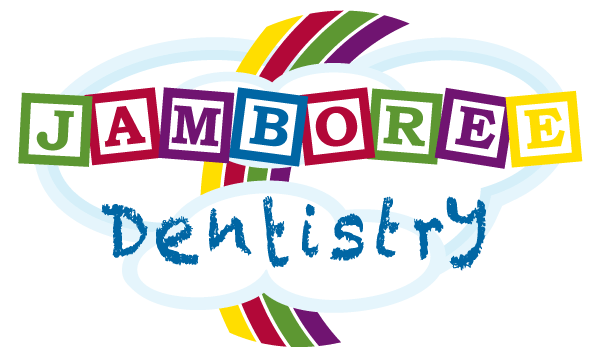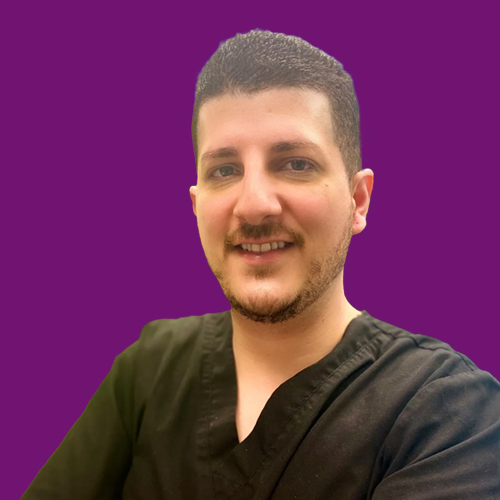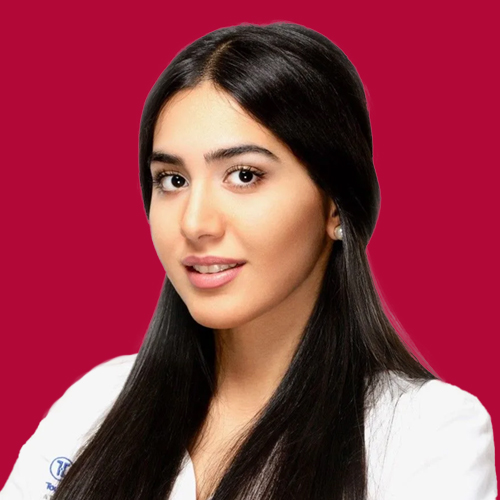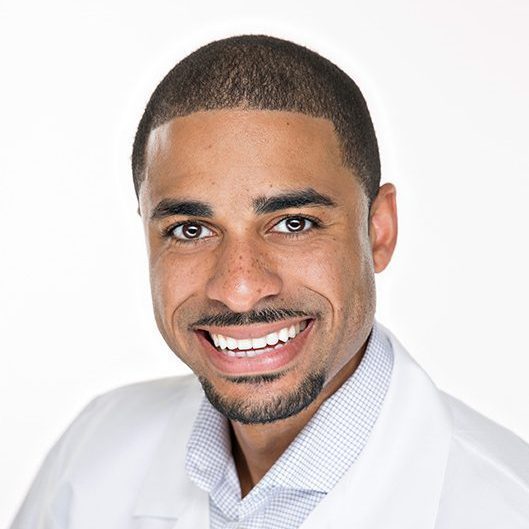Pediatric Dentistry Questions
Pediatric Dentistry Questions
Jamboree Dentistry is a pediatric dentistry practice in Houston that provides care that meets today’s most demanding pediatric dentistry needs. Do you have questions regarding the pediatric dentistry? Browse the Jamboree Dentistry pediatric dentistry questions here.
All children’s dental checkups include a thorough cleaning as well an overall dental health check by one of our dentists. We’ll make sure that your child does not have any cavities or other related issues. The extent of dental checkups will generally depend on your child’s needs.
Pediatric Dental Checkups with Jamboree Dentistry
Even with proper brushing and flossing, children’s teeth are still susceptible to decay. Dental checkups are needed to make sure that teeth are as clean and healthy as they can be. About 40% of children 2-3 years old have at least mild inflammation of gum tissues.
Dental Checkups Recommended for Baby Teeth
We recommend bringing your child in for a dental checkup as soon as their baby teeth begin growing. For one, oral habits (such as thumb-sucking) should be checked. The earlier the dental visit, the better the chances are of preventing long-term problems.
Children should brush their teeth at least twice a day. Preferably, children should brush their teeth three times a day, as soon as possible, after each meal: breakfast, lunch, and dinner.
Brush Teeth at Least Twice a Day
Teeth should be brushed at least twice a day as soon as children begin brushing their teeth, and for the rest of their lives. Baby teeth need to be maintained after meals just as well as adult teeth.
Clean Infant Gums at Least Twice a Day
Infant gums, like all teeth, should be wiped at least twice a day. Even before teeth begin sprouting, an infant’s gums should be wiped gently with a moist and soft cloth or a gauze square in order to help clean bacteria in the mouth.
Children should floss their teeth at least once a day. Preferably, children should gently and thoroughly floss their teeth after any solid meal or snack.
Floss Teeth at Least Once a Day
Flossing before bedtime is especially vital because it prevents any food caught in the teeth from staying in the mouth overnight, where it can cause damage to the teeth and gums. Flossing reaches bits of food that brushing alone cannot reach. Bacteria from any leftover food will attack the surface of the teeth and gums and produce cavities if the leftover food isn’t removed at bedtime.
As soon as a child has baby teeth that are touching, it’s time to begin flossing between them to prevent food from getting stuck between those teeth. Taking the time to help them floss their teeth each day until they are able to do it alone will help children develop a healthy habit that will last a lifetime, preventing many dental problems.
A proper dosage of fluoride strengthens the structure of children’s teeth to help protect them from this acid damage. It creates a tooth surface with an improved ability to resist decay. Fluoride is also helpful in repairing, or remineralizing, areas where acid damage has already begun and can reverse the early signs of tooth decay.
How does my child get fluoride?
Fluoride actually occurs naturally in water. About 74 percent of the homes in America are also connected to public water systems which adjust fluoride to an optimal level for preventing tooth decay. In addition, fluoride is contained in most toothpaste and mouth rinses. Dental professionals may apply fluoride in the form of a gel or foam as needed.
Maintain a Lifetime of Healthy Teeth
Encouraging proper brushing and flossing at home, along with regular dental visits and a balanced diet, will help give your child a lifetime of good dental health. Preventive treatments include cleaning and fluoride treatments, as well as diet and nutrition recommendations.
People love to put off things when they can, but there are some dental issues that need attention right away – particularly toothaches. The pain in your mouth is your body telling you something is wrong. And the longer you wait to come see the dentist, the worse you can expect the toothache to get.
This is why we always recommend that anyone experiencing mouth pain or dental discomfort contact our office immediately. There is no time to lose in identifying the source of the problem and correcting it. Besides, why suffer any longer than you have to?
What is a Toothache?
A toothache is generally defined as any pain in and around the teeth, gums or jaw. This may seem like a pretty broad definition, but often you will find that the pain shooting through your mouth can sometimes be difficult to pinpoint. You may know right away which tooth it is, but you may also experience shooting pains or a dull ache that radiates through multiple teeth. Whatever your symptoms are, they are are probably uncomfortable. They are also likely to get worse as time goes on.
Causes of a Toothache
Your nerves are sending pain signals for a reason. With a toothache, it usually means there is an issue with a cavity, cracked tooth, exposed root or similar problems. There are also instances where the pain is coming from a more serious issue, like an infection in the sinuses or in your ears. Sometimes, toothaches are even caused by heart disease.
One of the reasons why it is so important to get to a dentist when you have a toothache is that it takes a professional to identify the cause of your discomfort. It may be a simple cavity, but it may also be something far more worrisome. A dentist is the best qualified individual to find out what is going on.
We Can Put an End to Your Discomfort
We understand how easy it is to avoid making a dental appointment, especially if you are only experiencing mild discomfort. However, we urge you to contact our office regardless of the severity of the problem. We are happy to schedule you an appointment, take a look at your issue, and provide you with some effective solutions.
The number of times per day you brush your teeth, when you brush your teeth, how your brush your teeth, and the number of minutes you spend brushing your teeth are all important alongside your regular Houston pediatric dentistry visits.
How many times per day, and when, should I brush my teeth?
The American Dental Association (ADA) recommends brushing your teeth at least twice per day. A good first time is before breakfast, not after. The reason for this is that plaque, a sticky film containing bacteria, forms on your teeth while you sleep. After you eat any food containing sugar, the bacteria formed by the plaque releases acid which attacks your tooth enamel. After repeated release of this acid on the enamel, it is likely cavities will form. Why not start your day by removing the plaque?
A good second time to brush your teeth is after dinner, but not right after. If your meal or what you drank with dinner was acidic, that acid can also contribute to the breakdown of your tooth enamel. It’s a good idea to wait 30 minutes before brushing.
If you eat something sweet during the day, brush your teeth after you have finished. If you’re not able to brush, rinse your mouth with warm water to loosen food particles, especially sticky ones,
How should I brush my teeth?
Follow the instructions on the Jamboree Dentistry tooth brushing page, and you won’t go wrong. Remember to use a soft toothbrush designed for children.
How long should I brush my teeth?
We recommend brushing your teeth for two minutes, and not scrubbing your teeth in a haphazard manner, in four sections, each one for 30 seconds. Imagine dividing your mouth into four parts: upper left front and back, upper right front and back, lower left front and back, and lower right front and back.
You can get a digital push-button timer and set it for 30 seconds. Press the button, and the timer will start counting from 30 down to zero. When the timer reaches zero, press the button to start the countdown from 30 again, and brush the second section of your teeth. Repeat these steps two more times, switching to another section each time.
There’s something important to remember regarding plaque. This sticky substance tends to accumulate where your teeth and gums meet. Don’t just brush your teeth, but brush your gums, too. When have finished brushing your teeth, it’s time to floss.
The gritting and screeching sound of a child grinding his teeth can be very unnerving to parents, and many parents wonder what is wrong with their child. However, teeth grinding, known as “bruxism,” is quite common in younger children. Why is your child grinding his teeth? Is there anything you can do to deal with this problem?
Here’s a closer look at teeth grinding in children. Our pediatric dentistry in Houston may provide the solutions you need.
Reasons Children Grind Teeth at Night
There are several reasons that children grind their teeth at night. In small children, they often grind their teeth as they get used to having teeth in their mouth. Grinding also occurs because a child is growing. The child’s teeth and jaws are continuing to grow, and many children grind their teeth as they adjust to this new growth.
Childhood bruxism has also been linked to teething, earaches, anxiety, pain, breathing problems, and malocclusion, which is a term for when the child’s teeth don’t line up correctly.
Talk to Your Child’s Dentist About Bruxism
It’s always a good idea to talk to your child’s dentist if you notice that your child is grinding his teeth at night. This way your child’s dentist can look for any potential problems, such as tooth fractures, pulp exposure, or cavities. However, it usually isn’t a problem in younger children. As a child’s permanent teeth start developing, most children will simply grow out of the habit.
Ensure Your Child is Relaxed
Of course, if the grinding becomes severely annoying there are a couple things to try. If you think the bruxism is caused by stress, ensure your child is relaxed, particularly at bedtime.
Stretching exercises, a massage, or relaxing bedtime routines may help. If you notice your child grinding his teeth during the day, get them involved in another activity, such as talking or eating.
Older Children Suffering Bruxism are More in Danger
Once your child becomes a teenager, if you continue to notice grinding, talk to your dentist again. A teen already has his permanent teeth, and it’s important to prevent damage to the permanent teeth.
Your teen’s dentist may want to create a custom night guard for your child that will stop the problem and keep teeth protected, ensuring your teen doesn’t cause serious damage to the permanent teeth.
While knocking out a baby tooth is not a big deal, knocking out a permanent tooth is a more serious issue that needs to be dealt with immediately. The good news is that the tooth can often be successfully replanted, even after it’s knocked out, if you take quick action. If your child falls and knocks out one of their permanent teeth, follow these steps as quickly as possible.
Step #1 – Keep Calm
First, make sure you stay calm. If you stay calm, it is much easier to keep your child calm so you can go through the correct steps to save the tooth.
Step #2 – Rinse the Tooth
Find the tooth and then make sure you pick it up, touching only the crown. You do not want to touch the root of the tooth. Rinse it off with some plain water. Do not use any chemicals or soap. Do not scrub at the tooth or dry it. However, you do want to use a bit of water to rinse away any residue or dirt.
Step #3 – Place Tooth in the Socket
Immediately place the permanent tooth back in the socket if you can. The faster you get it in the socket, the greater the chance the tooth will survive. Use your fingers to gently place the tooth in the socket. You can hold the tooth in place or have your child gently hold the tooth in place.
Step #4 – Submerge Tooth in Milk if Needed
If you are not able to get the tooth back in the socket, the tooth needs to be kept moist. The best option is to place the tooth in a small container, covering it with a bit of whole milk. The milk can help preserve the tooth.
Step #5 – Get to a Pediatric Dentist Immediately
Whether you can get the tooth in the socket or you have to place it in milk, you are going to need to get your child to a pediatric dentist immediately. To save the tooth, this problem needs to be taken care of right away. Call, explain the situation, and get an emergency appointment. It’s ideal to try to get your child and the tooth to the dentist within 30-60 minutes for the best results.
A patient needs a root canal when their nerve is infected or they have a large cavity in a tooth. There are a lot of people that have an unfortunate misconception about root canals causing pain. Root canals must be performed by a quality endodontist, but they do not hurt.
The Steps of a Root Canal
Our teeth are meant to last a lifetime. Sometimes, however, damage occurs to a tooth, either from, perhaps, a deep cavity, or an injury that causes a tooth to crack. If the inside of a damaged tooth becomes infected, a dental specialist called an endodontist may have to perform root canal therapy to save it. Here are the steps followed by quality endodontists when performing a root canal on a patient.
- The patient is sedated.
- All of the nerve tissue in the tooth is removed.
- The tooth is filled with a rubber-like substance that protects the tooth.
- The tooth is built up with filling material.
- A crown is put on the tooth.
A Root Canal Does Not Hurt
All that hurts is the injured and infected tooth itself before treatment. Root canal therapy does not hurt. Armed with optimal knowledge and training, our endodontists have the ability to get the patient properly numbed, thus a root canal treatment is a non-painful procedure.
Pediatric Root Canal Therapy in Houston
At Jamboree Dentistry, we pride ourselves in having quality specialists in our office, including endodontists, otherwise known as root canal specialists. Our pediatric dentistry practice in Houston specializes in root canal therapy.
For parents trying to find the right dentist for their child, it is hard to know where to start. There are both family dentists as well as pediatric dentists, both of which will see children. In order for a parent to determine whether to send their child for Houston pediatric dentistry or family dentistry work, it is important to see the difference in these dentistry professions.
The Amount of Schooling
Obviously both family and pediatric dentists need to go to dentistry school. The difference though is that while a family dentist ends their schooling with dentistry school a pediatric dentist will continue their education. There are two to three years of specialized training required for a dentist to become a pediatric dentist to ensure they can offer the best care to the children they see.
The Type of Patients They Accept
A family dentist will accept patients of any age. Whether it is a toddler for their first appointment or an elderly patient getting their teeth pulled for dentures, it is all done in the one office. A pediatric dentist on the other hand will limit the patients they see to only children. Generally they will see patients through adolescence but once they reach adulthood they will find another dentist that treats adults, maybe even a family dentist.
The Specialties of the Dentist
For the most part, a family dentist is only considered a primary dentist. They do not usually specialize in other areas. A pediatric dentist on the other hand can be both a primary and a specialty dentist for children. They may not specialize in everything, such as orthodontics, but they will generally have something else to offer aside from just primary dentistry. This can allow children to be more comfortable with the specialists they see as they already know them.
The Office
It is also worth noting that a pediatric dentist will generally have a more child friendly office for children, which can help eliminate fear. Since all they see are children, the office can have a kid friendly feel to it. The staff are generally trained in handling children to help them feel less fearful. When you combine this with gentle techniques learned with the specialized training, it can make for a better office experience than going to a traditional dentist office which is what most family dentists offer.
Unfortunately, most children deal with a toothache at some point in their lives. Toothaches may be caused by cavities, a break in the tooth, or even a piece of food wedged too tightly between the teeth. What do you do when your child begins complaining of a toothache? Here are some helpful tips and suggestions to keep in mind.
Symptoms of a Toothache
What are the symptoms of a toothache? In children, the symptoms may include throbbing pain in a tooth, pain in the jaw around the tooth’s location, fever, shooting pain when drinking or eating something cold or hot, and a tooth that is very painful to touch.
Temporary Solutions to Ease Your Child’s Pain
Several temporary solutions can ease your child’s pain when he has a toothache. One great idea is to floss your child’s teeth to ensure there’s not a piece of food wedged in the area causing the pain. Next, it’s a good idea to warm the area with some salt water.
If the toothache comes with significant swelling, having your child place a cold compress on the area can help to reduce the swelling and inflammation. For pain, you can give your child some ibuprofen or some acetaminophen for the pain, being careful that you only administer the recommended dose for your child’s age. These medications should not be given to children under the age of two.
Never Apply Aspirin to the Gums or Tooth
You should never apply aspirin to your child’s gums or the tooth to help relieve the pain. Doing so may result in soft tissue damage inside your child’s mouth. Applying aspirin in this way also may result in Reye’s syndrome, a fatal disease.
The Importance of Seeing the Dentist
Keep in mind, it’s essential to get your child to the dentist as quickly as possible if he has a toothache. If your child has a severe toothache, you may want to have your child seen by an emergency dentist to have the problem taken care of quickly. Treatment for the toothache will depend on the root cause of the problem.
It’s normal for parents to be concerned about the safety of dental x-rays. Rest assured though, they are extremely safe.
What is a dental x-ray?
Dental x-rays are useful diagnostic tools. Dental x-rays help pediatric dentists in many ways.
Dental X-Ray Functions
- Seeing how a child’s teeth are coming in,
- Determining the size, position and number of teeth that remain inside the gums
- Identifying missing or extra teeth
- Finding infection in the mouth or teeth
- Planning for future orthodontic treatment
- Detecting cavities between teeth
- Diagnosing problems that can’t be seen with a visual exam
Types of Dental X-Rays
There are four primary types of dental x-rays.
1. Bitewing X-Rays
These x-rays allow dentists to see the areas between teeth. They identify where and how cavities may be starting. Children get these x-rays after the teeth in the rear of the mouth touch one another.
2. Periapical X-Rays
Dentists use these x-rays to view the entire crown and roots of up to three consecutive teeth. The teeth’s bone structure and any permanent teeth growing below the baby teeth will be visible with this film. A periapical x-ray can also be used to find abscesses and gum disease.
3.Panoramic X-Rays
All of a child’s teeth can be seen on this type of x-ray as well as the upper and lower jaws, sinuses, and temporomandibular joints. They are often used to assess injuries or to guide orthodontic treatment.
4.Occlusal X-Rays
All the upper or all the lower teeth will be visible on one film with this type of x-ray. They can be used in place of a panoramic x-ray or if a child experiences difficulty with bitewing x-rays.
Are x-rays in any way dangerous?
With an x-ray, patients are exposed to radiation. That’s why lead aprons are placed on the person’s body during an x-rays and while pregnant women are advised not to have x-rays.
Pediatric dentists take measures to limit the amount of radiation that children receive during a dental x-ray. They do this by providing children with a lead apron to wear during the x-ray and by using high-speed film which limits the amount of radiation that must be used during the test.
While x-rays are not dangerous, they can be uncomfortable for some children. With bitewing x-rays, the film must be held inside the mouth while the picture is taken. This can sometimes cause discomfort in little mouths.
Preventing children from developing tooth decay is vital to lifelong dental health. While tooth decay can be treated if caught in time, it’s preferable to prevent tooth decay from taking hold within a child’s mouth in the first place. There are some simple things parents can do to prevent children from getting tooth decay and the ensuing dental problems that can arise.
Brushing before bedtime is vital.
Tooth decay develops as a result of sugars and other food products in the mouth combining with the naturally occurring bacteria. This causes acid to form, which can attack the surface of the teeth and damage the enamel. If tooth decay is allowed to sit in the mouth without being treated, it can cause more serious problems like cavities and gum disease.
Often, a lack of brushing and proper oral hygiene is the main reason for tooth decay forming. Proper brushing and flossing are usually enough to remove the acids from the mouth before they can do prolonged damage and stop the formation of tooth decay. Brushing before going to sleep is especially vital, as the acids in the mouth will attack the surface of the teeth and gums all night if they aren’t removed at bedtime.
Visit the dentist as early as possible.
One of the most important things parents can do is teach children good dental habits and the importance of visiting the dentist from a young age. Parents should take their children to the dentist for regular visits, beginning when the first tooth erupts from the gum line.
Starting these visits early will help children understand the importance of regular dental checkups and can also prevent fear of the dentist when the child becomes an adult. Starting visits to the dentist early will enable the dentist to check on the tooth’s position and development, and ensure there are no signs of early tooth decay.
Once the exam is complete, the dentist can recommend a specific program of brushing, flossing, and other treatments for parents to teach to their children at home. Encouraging proper brushing and flossing at home, along with regular dental visits and a balanced diet, will help give your child a lifetime of good dental health.
Parents always want to make sure they provide the best for their children and ensuring healthy teeth is just one of the ways to do this. One of the questions many parents have is whether their child sucking on a thumb or pacifier can harm their teeth. There are a few things parents need to understand with this.
Why Children Suck on Their Thumb or Pacifier
This is used as a method of self soothing for the child. This is usually seen in babies as well as toddlers. Most children are able to get past the need to suck their thumb or on a pacifier by the time they reach 4 years old.
Will This Cause Damage to the Teeth?
As long as the child stops sucking their thumb or pacifier by the time they are out of toddlerhood then this should not be an issue. However, if they continue to suck their thumb or pacifier after this then it could indeed cause damage to the teeth. This is why older children who still use sucking as a means of self soothing should see a doctor to help address the cause and help prevent further damage to the teeth.
How to Help a Child Stop This Bad Habit
For children who do not want to give up their thumb and pacifier sucking habits on their own this can be difficult. For pacifier suckers, parents can start to “hide” the pacifiers if children are unwilling to give them up. Another option is to just not give into your child except at certain times of the day, such as naptime and bedtime.
Thumb sucking can be a little more difficult to stop as the child always has their thumbs with them! One of the best ways to handle this is to start making them conscious of what they are doing and having them stop when you see them. Parents may even reward them for improvements.
For parents who are concerned about the longer term effects of their child’s thumb and pacifier sucking, the best thing to do is to see a pediatric dentist. When Houstonian parents go with quality pediatric dentistry in Houston, parents will find the children are more comfortable and the staff is more helpful.
When some children smile, they may show an excessive amount of gum tissue. This is called a gummy smile and it can be treated. Gummy smiles that stem from a variety of different problems can be treated, including gum irritation and overgrowth from braces, altered passive eruption, thumb sucking or bruxism, as well as skeletal developmental problems.
Gummy smile can it be treated
Know What Causes a Gummy Smile
Before treatment, it is critical to properly evaluate the problems and get an accurate diagnosis. Some more superficial issues can be easily corrected while others such as skeletal problems can be more difficult.
Gum Irritation and Overgrowth from Braces
This is more likely to happen if the teeth appear shorter before the braces are placed on the teeth. This problem results not from the quality of the orthodontic care but is a result of the pre-treatment gum and bone thickness.
Altered Passive Eruption
The gum and bone normally recede as a part of the normal eruption of the teeth. When this normal recession does not occur, the gums cover too much of the teeth and make them appear shorter. The teeth are usually not shorter. They are usually of normal size but are buried under the gum and bone.
Thumb Sucking and Bruxism
If there are habits such as thumb sucking or grinding (bruxism), excessive pressures or tooth wear can alter the appearance of the teeth. The problems may be able to be corrected with orthodontics, surgical procedures or with dental restorations such as crowns or veneers.
Skeletal Developmental Problems
Skeletal developmental problems affect the growth of the jaws and the teeth. If orthodontics is instituted at 7 to 9 years of age, the growth of the jaws can often be controlled and the cosmetics can be improved.
Jamboree Dentistry Provides Gummy Smile Treatment
We provide gummy smile treatment that’s just right for your child. If we determine your child can benefit from this procedure, we’ll remove your child’s excess gummy tissue to reveal their full smile. We can provide you and your child a Medicaid pediatric dentist in Houston that makes sure your child’s teeth look their best. Contact us today for more information.
Many parents find themselves wondering when their child will start losing their baby teeth. In most cases, at around six years of age, the first permanent teeth will begin to erupt. Some teeth may erupt earlier or later, as all children’s dental makeups are different.
Should Your Child Wiggle That Tooth?
While you do not want your child to yank out a tooth once it does become loose, it is fine to let your child wiggle the tooth gently. If the tooth refuses to come out of your child’s mouth, you may need to have it pulled by a dentist, although this is rarely necessary.
When to See a Dentist Regarding Erupting Teeth
If your child has a stubborn loose tooth that does not want to come out or your child has not lost any teeth by the age of eight, it is a good idea to talk to the child’s dentist. Your child’s dentist can take x-rays to take a closer look at the adult teeth beneath the surface, and if any treatment is needed.
From the time teeth begin growing at infancy to age 18, all children can benefit from pediatric dental care. Some children may be ready to see a general dentist around age 12, or whenever their adult teeth are grown in. Though, pediatric dentists are also qualified to see patients of all ages, including patients’ parents and grandparents.
Pediatric Dental Care Equipment and Specialties
Pediatric dental equipment is maintained by rigorous industry standards to guarantee safety and complete flexibility for all ages. This includes proper equipment and training for wisdom teeth removal, molar removal, caps and cavity fillings. Baby teeth as soon as they begin growing to fully-grown adult teeth are treated with equal levels of expertise and precision.
Infant Pediatric Dental Care
We recommend children see a pediatric dentist as soon as teeth begin growing. It is very important to see a dentist in order to get your baby’s oral health off to a good start in order for a lifelong set of healthy teeth.
Overall, the best toothbrushes for kids have soft bristles. Toothbrush size varies by age. Typically, children are ready to use an adult toothbrush by age 9-10.
Comfort is Key for Children’s Teeth
At the first sign of teeth erupting, a child’s toothbrush should be used with a small dab of toothpaste. Children’s hands and mouths are different than adults, so they need to use toothbrushes designed for children in order to effectively clean their teeth.
The Best Toothbrush for Kids 9 and Older
By age 9-10, many adult teeth are grown, so an adult toothbrush can be used. We recommend a soft-bristled toothbrush in order to avoid irritating the gums, although the gums do heal quickly, as long as they are kept very clean. Any toothbrush should be used for two minutes, two times a day.
Meet Our Doctors
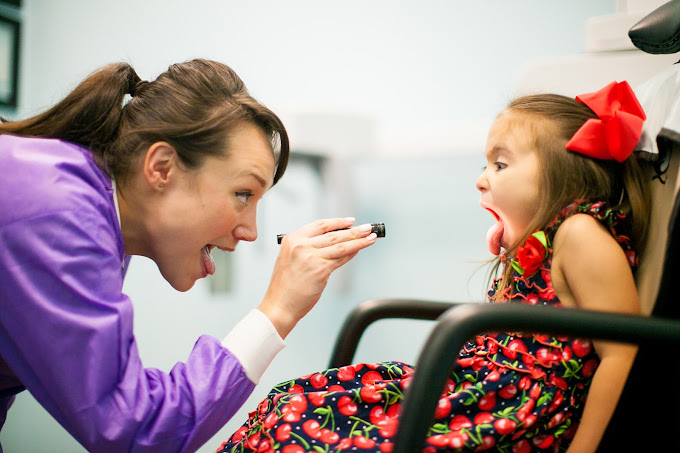
We Love Hearing From Our Patients
Testimonials
Positive Feedback & Testimonials
5 Amazing Locations in Houston, TX

North Freeway Office
Phone
Address
Hours
- Mon-Thurs: 9 AM - 6 PM Fri-Sat: 9 AM - 3 PM
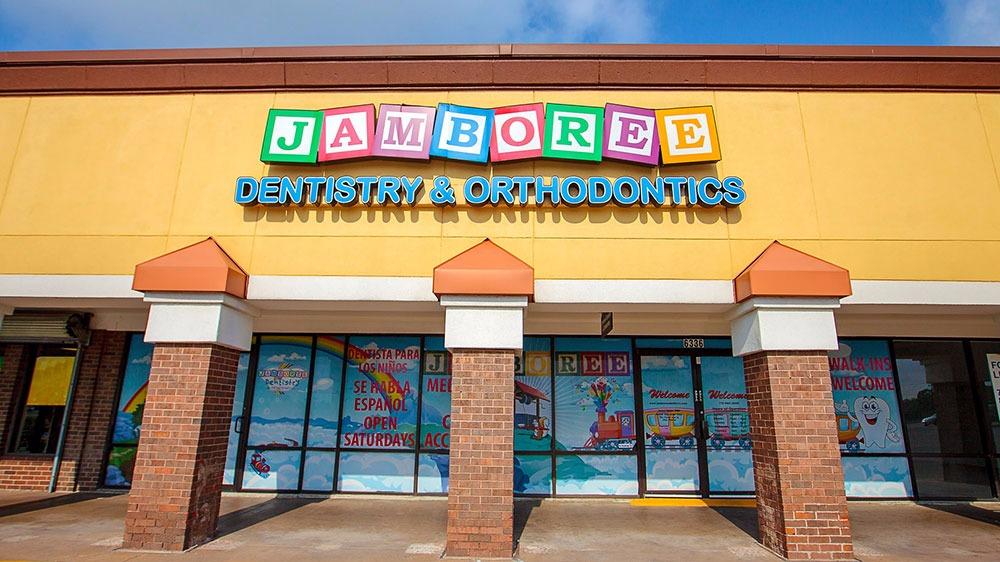
Telephone Rd Office
Phone
Address
Hours
- Mon-Thurs: 9 AM - 6 PM Fri-Sat: 9 AM - 3 PM

Willow Chase Office
Phone
Address
Hours
- Mon-Thurs: 9 AM - 6 PM Fri-Sat: 9 AM - 3 PM

FM 1960 Office
Phone
Address
Hours
- Mon-Thurs: 9 AM - 6 PM Fri-Sat: 9 AM - 3 PM

Bissonnet Office
Phone
Address
Hours
- Mon-Thurs: 9 AM - 6 PM Fri-Sat: 9 AM - 3 PM
